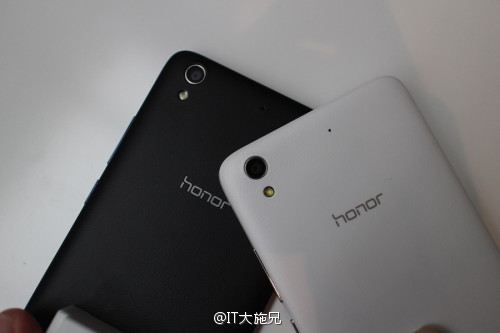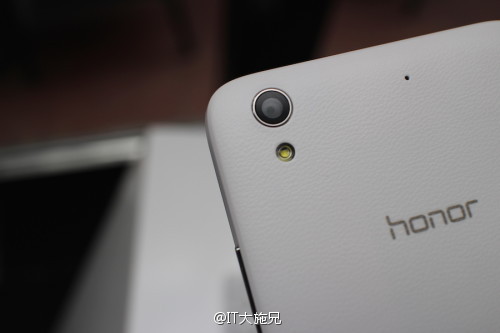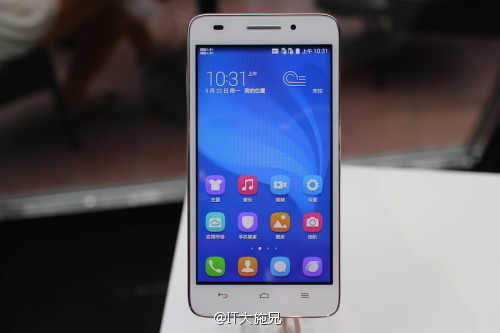Huawei Honor Play 4 Takes On The Moto G With A 64-Bit Chip And LTE
Huawei will soon join HTC in releasing ARMv8-based chips inside even its lower-end phones. To that end, the new Huawei Honor Play 4 comes with a Cortex A53-based Snapdragon 410 (quad-core 1.4 GHz) which has an integrated LTE modem, a 5" screen with 720p resolution, 1 GB of RAM, 8 GB internal storage, 8MP rear camera, 2MP front camera, NFC support and a 2,000 mAh battery.
Going by its specs, the phone looks like a worthy competitor to the Moto G. In fact, the phones have very similar specs, with the exception of the processor, the lack of an IPS panel and Gorilla Glass 3. The new Moto G uses the same Snapdragon 400 processor as last year's model, while the Honor Play 4 uses the successor to that chip, the Snapdragon 410. The rest of the specs are basically identical.
Thanks to Qualcomm's Snapdragon 410, the Honor Play 4 also gets LTE, and the whole package costs 799 Yuan (approximately $130 USD), which is actually $50 less than the new Moto G without LTE. The one potential downside, depending on tastes, is that unlike the Moto G, the Huawei Honor Play 4 won't come with stock Android.
There has been some criticism against companies like HTC and Huawei who are bringing 64-bit ARMv8 processors even to low-end devices, because it's thought to be unnecessary as these devices merely have 1 GB of RAM anyway.
However, ARMv8 is a whole new instruction set, on which all new ARM chips will be built, and it's not only future-proof in terms of software support, but it also brings some performance advantages over an equivalent ARMv7 32-bit chip.
One of them is ARMv8's hardware acceleration for AES encryption, which decreases the encryption time by an order of magnitude. This feature could work well with Google's new move to encrypt all Android L devices and beyond by default. Since Android devices don't have any kind of hardware acceleration for encryption right now, on-device encryption will be done by the CPU on devices that don't have an ARMv8 chip, which is much slower than dedicated hardware.
Unfortunately, all of these phones coming out now also need Android L to fully take advantage of ARMv8 processors, so people wanting those extra performance features will need to make sure that either their phones come with Android L by default or will soon be upgraded to it.
Get Tom's Hardware's best news and in-depth reviews, straight to your inbox.
Follow Kevin Parrish @exfileme. Follow us @tomshardware, on Facebook and on Google+.
Lucian Armasu is a Contributing Writer for Tom's Hardware US. He covers software news and the issues surrounding privacy and security.
-
Gelid03 So Apple make a 64 bit processor and use it with 1GB RAM it is amazing and revolutionary. HTC does it and all of a sudden it is unnecessary. What am i missing?Reply -
maddad What you are missing is that the folks saying it is unnecessary are the other Android phone makers in competition with this device.Reply


